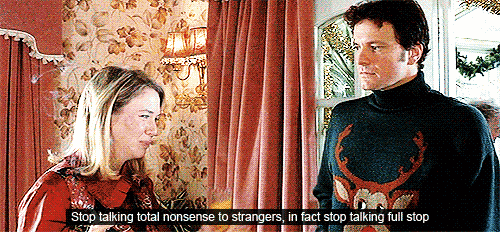The Bluestocking, vol 122: Lost childhoods
Happy Friday!
I came thundering towards the end of the year like an elephant on ice-skates, thanks to the general election, and this Radio 4 series we turned around in six weeks flat from idea to execution. Two of the programmes have already aired - on data-driven parenting and reforming the welfare state - and the next two are Paul Krugman on "zombie economics" and the psychologist Roy Baumeister on why we are attracted to the negative in life.
In case you're worried that stocks of me on Radio 4 will drop precipitously over the festive period, I've pre-recorded this review of the year, with Rory Sutherland and Jen Williams, which is broadcast on 28 December.
Helen

Child amputees in the Belgian Congo; if adult men failed to meet their quotas for rubber production, their wives or children would be punished, because the men needed their hands to work.
Decolonising the Museum
In 1910, soon after the king died and his personal colony became the Belgian Congo, the museum finally opened its doors. Part of it houses archives and sponsors natural-science research, but throughout the 20th century, its public exhibition halls continued to express a highly colonial view of the world. The human zoo was gone, but silence about the plunder remained. When I first visited the museum, in 1995, the exhibits of Congo flora included a cross section of rubber vine—but not a word about the millions of Congolese who died as a result of the slave-labor system established to harvest that rubber. It was as if a museum of Jewish life in Berlin made no reference to the Holocaust.
Adam Hochschild wrote an incredible book about the genocidal stain on humanity that was King Leopold of Belgium's time ruling the Congo. Now, he's written about Belgium's museum commemorating that era. It's also an interesting reflection on what history is, and how it continually renews itself. Like Hochschild, I'm more in favour of adding to the history on display than tidying it away. (I made the same argument over "problematic" art.) This stuff happened, and we should look at the ugliness of it, rather than comfort ourselves by ignoring it.
Does Who You Are At 7 Determine Who You Are at 63?
The narrator of 1964’s “Seven Up!” reminds the viewer that “the shop steward and the executive of the year 2000 are now 7 years old,” as the boys and girls arrayed before us in grainy black and white chase each other around during a special outing at the zoo. “This,” the episode concludes, “has been a glimpse of Britain’s future.”
...
Hewat was taken with the saying, “Give me a child until he is 7 and I will give you the man,” and proposed the idea for “Seven Up!” As one researcher remembered it, Hewat imagined an aerial shot of 20 7-year-olds subjected by voice-over to merciless prophecy: “ ‘Five are going to be winners (zoom in), and 15 are going to be losers (zoom in). Now we’re going to show you why.’ ” Years later, the researcher said, “we supposed artists nodded condescendingly at this barbarian tabloid conceit and then went out and made a film which, though not in those words, said exactly that.”
I find the Up! series - whose participants have now reached 63 - pretty much unbearable to watch, for the same reason that I sob like a child over that bit of the Pixar movie Up where you see the backstory of the grumpy old guy. If you concertina down a life to its high and low points, the whole thing looks both short and innately tragic. None of us reach our full potential. None of us die without regrets or unfinished business. We all have to deal with fading away and the world going on without us.
You can see why I don't go to many parties. Anyway, this piece is great, if filled with that same kind of sadness as the series itself.
The Brilliance of Safe, Legal and Rare
Bill Clinton located language that made it possible to be completely for legal abortion and against legal abortion. The most Clintonian aspect of rare is that it is meaningless. Clinton never—“not once, not a single time,” to invoke another of his famous pronouncements—told us how rare he thought abortions should be. Or suggested a mechanism by which he would make them rare, or announced the ideal number of abortions a year. He knew us better than we knew ourselves. We wanted something, but we didn’t want to face a full accounting of it—and when that is your moral crisis, your superhero is Bill Clinton.
Hope everyone else is enjoying the Left's Period of Reflection (TM) as much as I am! Such period. Much reflection. This piece by Caitlin Flanagan makes the fair but hard-to-hear point that sometimes the best way to argue for progressive goals is to downplay how progressive you're being. See also New Labour's redistributive attitude to taxation, creation of the minimum wage etc, where their "don't scare the horses" approach means that people will say with straight faces now, "yeah but they were basically Tories". (Fun fact: the Conservatives opposed the introduction of the minimum wage, saying it would destroy jobs, and only abandoned that pledge when it was successfully introduced and they realised that telling people £3.60 an hour was too much to expect was a ludicrous vote-loser of a policy.)
Quick Links:
Paul Mason has graphs about how Labour lost the election. They are interesting.
"Now that famous women are in control of their own images, now that they have transitioned from object to subject, they have successfully supplanted the male gaze with a capitalist one." The 2010s were the Influencer Decade: we moved from the Perez Hilton Trainwreck view of celebrity, to a glossier, controlled, and above all consumable one.
Relatedly, this blog - Pop Culture Died in 2009 - reminds me that even the last freaking decade already feels like low-grade-video-looking ancient history.
Merry Gifmas!

See you next time!

